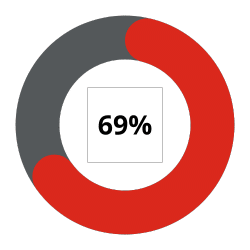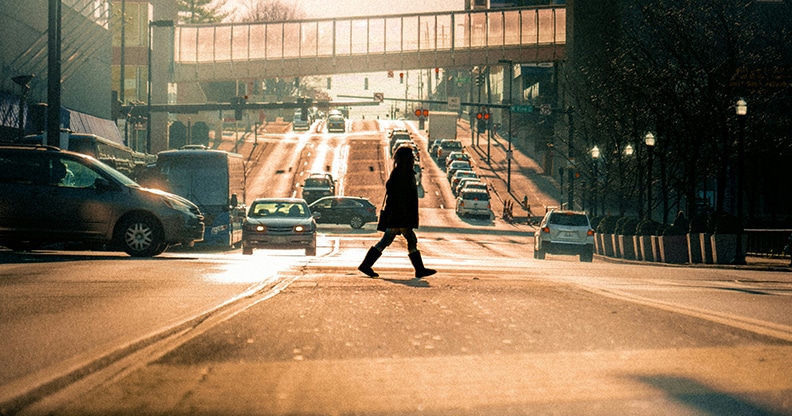In May 2008, Mariana awoke to find herself in the hospital after being beaten violently by her husband, to the point that she and her unborn baby almost died. As soon as the doctors gave her permission to fly, she left her homeland of Mexico and sought asylum in Canada with her six-year-old son.
When Mariana arrived in Montreal 15 years ago, she had nothing. She could get by in English but did not speak a word of French, the language she needed to find a job.
“In 2008, asylum seekers were not entitled to work permits, study permits or subsidized daycare,” said Mariana. “I was really stuck, as I couldn’t take my children to daycare so that I could attend French classes.”
Fortunately, she was soon referred to a community agency called Accueil aux immigrants de l’est de Montréal, which offered her services in her native Spanish. “I’ll always remember the two women who welcomed me there,” said Mariana. “One was named Zuleyma, who invited me to workshops for victims of domestic violence.” The agency also runs a drop-in daycare, where Mariana left her children twice a week so that she could take French lessons.
Being an immigrant and a single parent brings major challenges
“When I came to Quebec, my situation was very difficult,” said Mariana. “First, I felt guilty for taking my children away from their father. Then, my eldest son had trouble adapting. He often told me that ‘coming to Canada was not a good idea’.”
Mariana also brought up the daily challenges of being an immigrant single mother without a network. “I remember one time going out to get food baskets with the stroller,” she recalled. “I fell while getting off the bus, and my son helped me up. He looked me in the eye and said, ‘Why didn’t we stay in Mexico? Grandma would have been there to help you with my brother.’ He didn’t understand the situation.”
Her household was also under great financial strain. Even though Mariana was granted permanent residency and could access social assistance, she soon realized that this invaluable help only covered her rent. She still had bus passes, lunches, daycare and clothing to pay for.
Femmes-Relais Saint-Michel: A turning point
While raising her four children, Mariana rolled up her sleeves and studied to get her high school diploma. She was then referred to Femmes-Relais Saint-Michel, an agency that would completely change her life. This community agency’s mission is very meaningful, as immigrant women inspire and train other women so that they in turn can help others in their communities. The idea is that there is no better ally for an immigrant woman than another immigrant woman who has been through the same journey and who is trained, determined, and active in her community.
IN THE PAST YAER, NEARLY 100 PEOPLE/oR FAMILIES
HAVE RECEIVED SUPPORT SERVICES FROM Femmes-Relais Saint-Michel.*

The support that Mariana received motivated her to study community development and intercultural relations at Cégep Marie-Victorin. “I wanted to give back to this community that welcomed me so warmly,” she said. “Newcomer support agencies make an incredible difference. As an immigrant, you can isolate yourself at home to take care of your children, or you can go out and work and get involved while raising your family. That’s the path I was able to choose thanks to the support I received. I work to support myself but also to give back to others.”
“Community agencies are there to help, support, and guide you. It gives people so much hope and inspiration to see someone who has been in their shoes and come out the other side.”
Since 2020, Mariana has worked at the Joujouthèque Saint-Michel to prevent or reduce developmental delays in children. She created a Facebook support group for Allophone women in Montreal who are victims of domestic violence. She also works as a trainer for the Table de concertation des organismes au service des personnes réfugiées et immigrantes and as a counsellor and activity leader at Halte-Femmes Montréal-Nord for women who have experienced violence.
“Things are much better now,” said Mariana. “I’ve also found a wonderful man who supports me and has given me opportunities to get involved in social causes I care about. My children are thriving and they support me in everything I do.”
Leaving her old life took a lot of courage, but Mariana is proud of how far she has come. Her experiences also led her to a career helping other women and women asylum seekers—work that makes such a difference.

Refugee, asylum-seeking and immigrant women who are victims of domestic violence: A disproportionate tide of suffering
At the 46 shelters of the Regroupement des maisons pour femmes victimes de violence conjugale, women born outside Canada represent 69% of women at these shelters in the Montreal area and 51% at these shelters in Laval.**
Mariana says that there is a difference between a refugee fleeing war and a woman who is seeking asylum from a violent partner. “Women and children need psychological support,” she said. “When you leave a man you’ve loved, it’s never really over, as fathers have rights over their children. Victims of domestic violence don’t always have proof of what they went through. I couldn’t prove beyond a doubt that I was beaten almost to death and that I almost lost my child.
Fortunately, I have a very good lawyer. But I’ve seen too many women have to go back to the arms of their abusers…”
*Source: Femmes-Relais Saint-Michel, Annual Report 2022-2023
1 out of 5 people receives our help.
5 out of 5 people benefit from it.
Let’s all lend a hand
Supporting a network of over 375 community agencies also means promoting an inclusive, poverty-free society.



